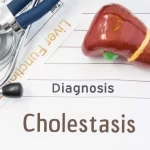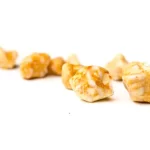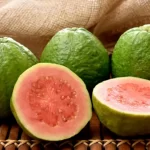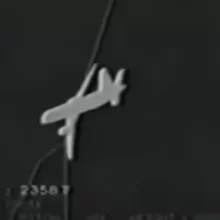This Is the Real Cause of Bloating, Constipation, Diarrhea, and Gas
Tired of navigating the labyrinth of gut health protocols with little to no relief? You’re not alone. Many individuals grappling with chronic gut issues like bloating, constipation, diarrhea, and gas often find themselves in a maze of antimicrobials, hoping to vanquish the bad bacteria wreaking havoc in their intestines.
But here’s the twist: indiscriminate warfare on bacteria can lead to collateral damage. Yes, it can annihilate both the villains and the heroes in your gut’s microbial story, leaving you in a gut predicament that’s hard to escape.
So, as we ponder the battlefield within, the question arises: If the war on bad bacteria isn’t the panacea, then what is?
The Critical Role of the Liver-Gut Axis
Enter the liver and gallbladder, the unsung heroes of your digestive saga. Among nutritional therapists, biliary issues, especially the sluggish flow of bile, are the silent culprits that deserve our attention. When chronic gut symptoms persist despite your best efforts, it’s often the liver and biliary system that hold the answers.
The liver-gut axis is the backstage manager of your digestion, quietly but powerfully orchestrating the show. When the liver isn’t in tip-top shape, it can lead to a disruption in bile acid production and regulation, creating a less-than-hospitable environment in your gut. This, in turn, can give rise to a host of symptoms, including mood swings, bouts of constipation, rollercoaster diarrhea, unwelcome bloating, systemic inflammation, and heightened sensitivity to various elements, from food to supplements and even environmental triggers.
The Real Cause of Your Chronic Gut Issues
Now, let’s take a voyage down the intriguing path of the liver’s influence on your gut health. Visualize your biliary tract as a vital river connecting your liver to your small intestines – a detox highway of sorts. Your liver, acting as a vigilant toxin collector, identifies and sequesters harmful substances, guiding them into your “bile river.” From there, they journey through your digestive system and eventually exit your body via stool. But here’s where the plot thickens – if your bile is thick and sluggish, it’s akin to a river running slow and stagnant.
In this analogy, the stagnant river of bile leads to toxin accumulation, and the once-therapeutic antimicrobial properties of bile on your gut’s microbiome become compromised. Bile ordinarily serves as the guardian, preventing the overgrowth of unwelcome microorganisms.
But here’s the twist: if toxins in your bile acids lack soluble fiber to bind to in your small intestines, they decide to backtrack and recirculate. This recirculation, primarily occurring in the ileum, the final segment of your small intestines, means toxins are on a never-ending journey. In essence, your liver and gallbladder’s hitches in bile flow and the toxin recirculation form the antagonists in this gut drama, creating a toxic environment that disrupts your gut’s delicate balance.
A 2021 study published in the Journal of Clinical and Experimental Hepatology shed light on the pivotal role of bile acids in managing the bacterial ecosystem of the gut. This study emphasized that declining levels of fecal bile acids can lead to the depletion of beneficial microbial populations, such as Blautia and Ruminococcus species, while proinflammatory pathogenic bacteria from the Proteobacteria phylum, particularly Enterobacteriaceae, gain ground.
Experts underscore how toxic flora can proliferate as your body’s hormonal and digestive systems weaken with age, setting off a cascade of health challenges. Understanding and nurturing the crucial connection between your liver and gut health may be the key to finally finding relief from your digestive struggles.
Supporting the Liver-Gut Axis for Optimal Digestive Health
Whether you’ve been grappling with persistent digestive issues like bloating, constipation, diarrhea, and gas or simply want to boost your overall gut health, these tips can make a significant difference.
Assess Your Toxic Load
Understanding what might be contributing to your body’s toxicity is a crucial first step in supporting your liver and gut. To evaluate your toxicity levels, consider mineral and blood testing. These tests can provide valuable insights into your iron, vitamin A, and copper levels, offering a clearer picture of your overall health.
Additionally, gut testing can help assess the condition of your digestive system, allowing you to make informed choices about how best to support it.
Incorporate Fiber-Rich Foods
A diet rich in fiber can passively support detoxification and enhance overall gut health. Some excellent sources of soluble fiber include beans/legumes, oats, whole grains, fruits, and vegetables. Getting enough fiber from these foods offers several key benefits for digestive wellness:
Delays gastric emptying, which helps you feel full for longer and assists in managing blood sugar levels, promoting stable moods.
Acts as nourishment for beneficial gut bacteria, fostering a healthy gut microbiome and reducing imbalances
Boosts the production of essential vitamins, particularly B-vitamins and K2
Combats constipation
Aids in binding toxins and bile acids, facilitating their excretion and supporting the optimal functioning of your liver and gallbladder.
Prioritize High-Quality Animal Protein
Ensuring an adequate intake of high-quality animal protein is vital to prevent protein deficiency, which can hinder liver detoxification processes. Incorporate lean meats, poultry, fish, or plant-based protein sources, depending on your dietary preferences, to meet your protein needs and promote liver health.
Streamline Your Supplement Regimen
To reduce the burden on your liver and gut, it’s essential to evaluate your supplement regimen. Identify the specific nutrients your body requires, focusing on those that address your unique health needs. Streamlining your supplement intake can simplify your routine and ensure you’re not overloading your liver with unnecessary supplements.
Be Mindful of Medications
Pay careful attention to the impact of prescription and over-the-counter medications on your liver. Some drugs, such as antibiotics, pain medications, and accutane, have the potential to harm your liver. Always consult with a healthcare professional about potential side effects and explore alternative approaches to manage health conditions whenever possible. Being mindful of the medications you take is a proactive step in safeguarding your liver and gallbladder health while maintaining overall well-being.
Liver and Gut Disorders: When to Seek Medical Advice
While adopting a healthy lifestyle and dietary practices can go a long way in supporting liver and gut health, it’s essential to recognize when it’s time to seek medical advice. Liver and gallbladder disorders can vary in severity, and timely intervention is crucial for effective management. Here are some key signs and symptoms that should prompt you to consult a healthcare professional:
Persistent Abdominal Pain: If you experience persistent and severe pain in the upper right side of your abdomen, it could be a sign of gallbladder issues, such as gallstones or inflammation. Seek medical attention if the pain is intense or recurrent.
Jaundice: Jaundice is characterized by yellowing of the skin and the whites of the eyes. It can be indicative of liver problems, such as hepatitis or liver dysfunction. If you notice jaundice, consult a doctor promptly.
Unexplained Weight Loss: Sudden and unexplained weight loss can be a symptom of various liver and gut disorders, including liver disease or cancer. It’s essential to investigate the underlying cause with a healthcare provider.
Changes in Urine or Stool Color: Dark urine and pale-colored stools can be signs of liver or gut issues. These changes may indicate a problem with bile production or flow. Consult a healthcare professional if you notice these alterations.
Digestive Problems: Chronic digestive issues, such as persistent bloating, diarrhea, or chronic constipation, should not be ignored. These symptoms may be related to gallbladder dysfunction or liver disorders.
Fatigue and Weakness: Unexplained fatigue, weakness, and a general sense of malaise can be associated with liver problems. It’s important to address these symptoms with a healthcare provider, especially if they persist.
Family History: If you have a family history of liver or gallbladder disorders, it’s essential to be vigilant about regular check-ups and screenings. Some conditions may have a genetic component, increasing your risk.
Changes in Skin Appearance: Aside from jaundice, other skin changes, such as itching, dark patches, or visible veins, may be indicative of liver issues. Consult a doctor if you notice unusual skin changes.
Alcohol or Medication Use: If you have a history of heavy alcohol consumption or are taking medications known to potentially impact the liver, it’s crucial to monitor your liver health through regular medical evaluations.
Remember that early detection and intervention can significantly improve the prognosis of liver and gut disorders. If you experience any of these symptoms or have concerns about your liver or gut health, don’t hesitate to consult a healthcare professional. They can provide a proper diagnosis, recommend appropriate treatment options, and guide you towards better health.
The post This Is the Real Cause of Bloating, Constipation, Diarrhea, and Gas appeared first on Healthy Holistic Living.












